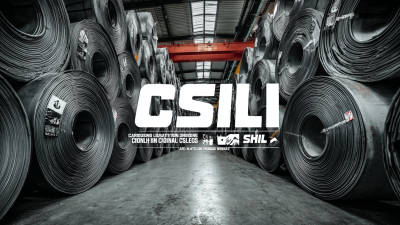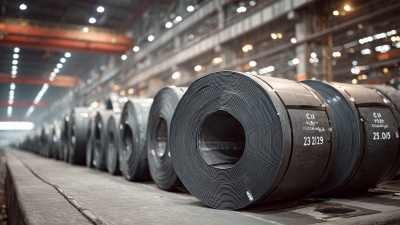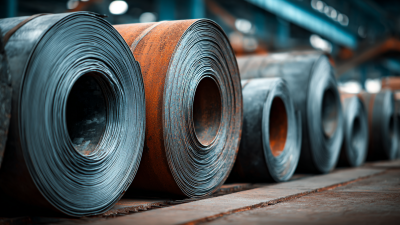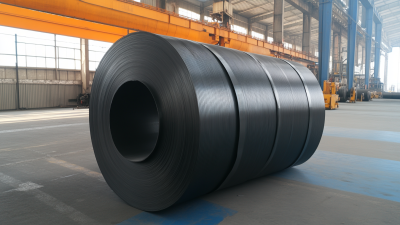In today's manufacturing landscape, the demand for high-quality materials is critical for meeting global industry needs, particularly when it comes to Carbon Steel Floor Coils. According to the World Steel Association, the global steel demand is projected to reach 1.87 billion metric tons by 2023, with carbon steel products being a significant contributor due to their versatility and strength. Carbon Steel Floor Coils are essential in various applications, from automotive manufacturing to construction, where durability and cost-effectiveness are paramount. This ultimate guide aims to provide insights into sourcing these vital materials, covering essential criteria for quality selection, supplier evaluation, and industry best practices. As industries evolve and require more robust solutions, understanding how to effectively source Carbon Steel Floor Coils is more important than ever for maintaining competitiveness and ensuring product integrity.
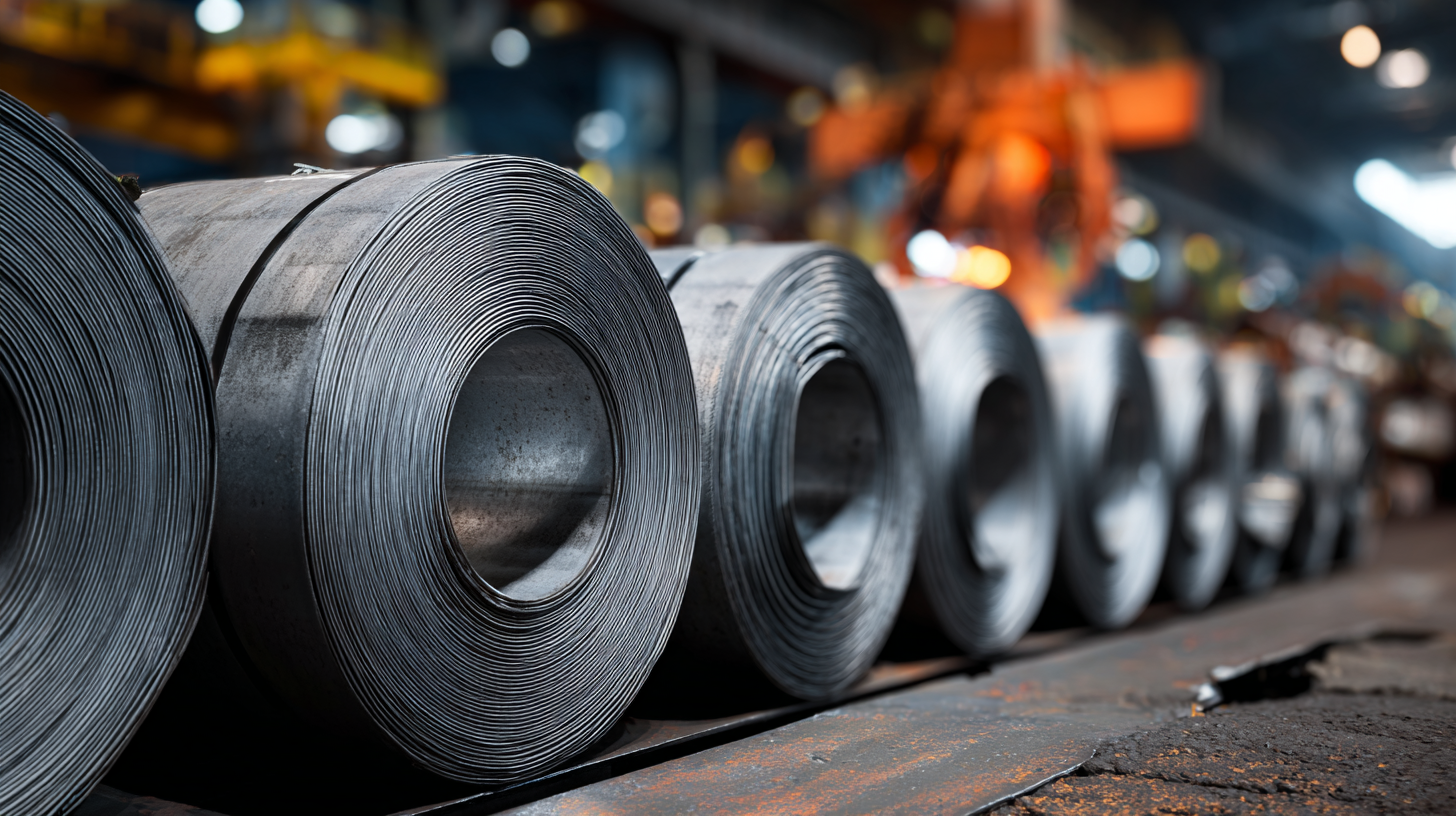
When sourcing carbon steel floor coils for global industry needs, several key characteristics must be taken into account to ensure optimal performance and durability across various applications. First and foremost, the chemical composition of the steel plays a critical role. A well-balanced mixture of carbon, manganese, and other alloying elements can enhance strength and toughness, making it suitable for heavy-duty applications. Buyers should look for detailed material certifications that provide insight into the steel's properties and manufacturing processes, ensuring that the coils meet industry standards.
Another important factor is the surface finish of the floor coils. A smooth, uniform surface can significantly reduce the risk of defects during subsequent processing steps, such as welding or painting. Additionally, considerations regarding thickness and width are essential, as they directly impact the material's usability for specific projects. Depending on the intended application, manufacturers may require different grades or finishes, which makes it crucial for buyers to engage with suppliers who can offer technical support and guidance in selecting the right products tailored to their unique requirements.
| Characteristic | Description | Importance | Recommended Standards |
|---|---|---|---|
| Thickness | Refers to the distance between the two flat surfaces of the coil. | Determines the weight and durability of the steel product. | ASTM A1011/A1011M |
| Width | The measurement across the width of the coil. | Affects the application suitability and efficiency of production. | ASTM A36/A36M |
| Surface Finish | The outer texture of the steel, can be hot-rolled or cold-rolled. | Impacts corrosion resistance and application in specific industries. | SAE J403 |
| Yield Strength | The amount of stress a material can withstand before deforming. | Crucial for structural applications requiring load-bearing capacity. | ASTM A572/A572M |
| Chemical Composition | The elements that make up the steel, influencing performance and properties. | Affects strength, ductility, and weldability. | ASTM A36/A36M |
When sourcing quality carbon steel floor coils for various industrial applications, knowing the top global suppliers can significantly impact procurement strategies. According to a recent report by Market Research Future, the global carbon steel market is projected to reach approximately $900 billion by 2026, with a notable increase in demand for robust and versatile materials, particularly in the automotive and construction sectors. Carbon steel floor coils are particularly favored due to their excellent durability, weldability, and cost-effectiveness, making them essential for manufacturing heavy machinery and structural components.
Among the foremost suppliers in this sector, companies like ArcelorMittal, Nippon Steel Corporation, and Baosteel are recognized for their high-quality products and extensive distribution networks. ArcelorMittal, for instance, boasts a production capacity of over 90 million tonnes of steel annually, positioning itself as a key player in the global market. Additionally, Nippon Steel's innovative manufacturing processes ensure the supply of high-grade carbon steel floor coils that meet stringent international standards. These suppliers not only cater to traditional industrial applications but are also expanding their offerings into the renewable energy sector, supporting the growing demand for sustainable building materials.
When sourcing carbon steel floor coils, one of the most critical factors that industry professionals must consider is the importance of material certifications. These certifications serve as a testament to the quality and compliance of the steel products with international standards. They provide assurance that the carbon steel has been tested and meets specific criteria for mechanical properties, chemical composition, and overall durability. For manufacturers and buyers alike, obtaining material certifications not only helps in ensuring reliability but also plays a vital role in building trust with clients and suppliers.
Additionally, certifications can significantly impact procurement strategies in a globalized market. They act as a benchmark for quality control, enabling companies to streamline their supply chain and minimize risks associated with subpar materials. By prioritizing suppliers who can provide comprehensive certification documentation, businesses are better positioned to safeguard their operations against the potential costs and setbacks of using inferior steel. Ultimately, the emphasis on material certifications in the sourcing of carbon steel floor coils underlines a larger commitment to quality assurance, which is indispensable in today's competitive industrial landscape.
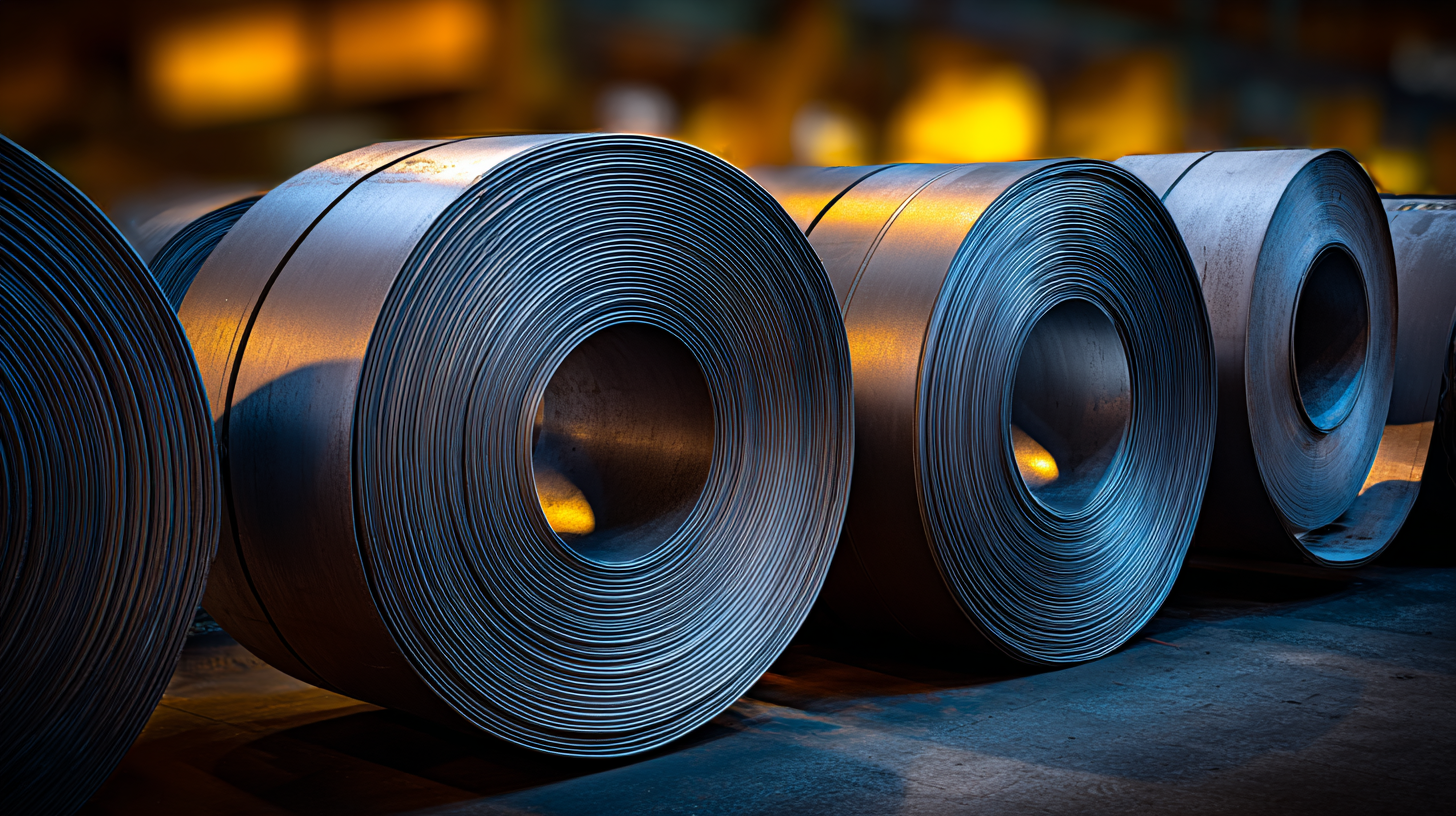
When it comes to importing carbon steel floor coils, businesses are increasingly prioritizing cost-effective strategies to remain competitive in a global market. According to a report by the World Steel Association, global production of carbon steel is expected to reach over 1.8 billion metric tons in 2023, highlighting both the demand and the potential supply challenges. To navigate these challenges, it’s essential for importers to establish strong relationships with reliable manufacturers while also exploring strategic sourcing options that can significantly reduce shipping and handling costs.
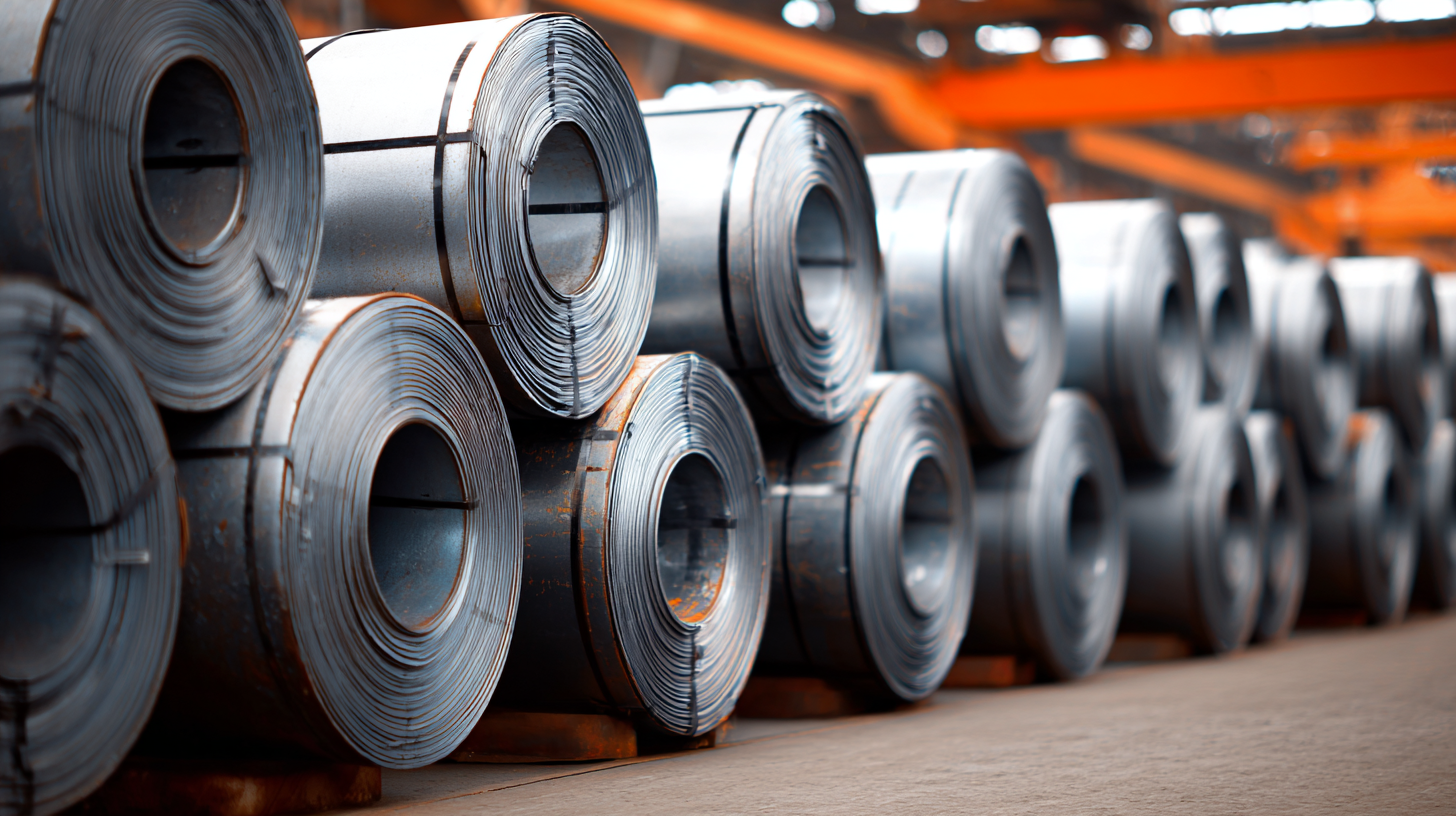
Furthermore, leveraging technological advancements in supply chain management can yield substantial savings. As logistics become more integrated, tools such as predictive analytics can help businesses forecast demand accurately and manage inventory effectively. A study by Deloitte indicates that organizations utilizing advanced supply chain technologies can achieve cost reductions of up to 15%. By sourcing carbon steel floor coils through a mix of direct relationships and technology-driven processes, companies can enhance operational efficiency and secure high-quality materials without compromising budgetary constraints.
In the ever-evolving landscape of the global industry, the production and sourcing of carbon steel floor coils have witnessed significant innovations. One of the key trends is the integration of advanced manufacturing technologies, such as automation and artificial intelligence, which enhance production efficiency and product quality. By leveraging these technologies, manufacturers can streamline processes, reduce waste, and ensure that supplies meet the highest standards expected in various applications, from construction to automotive industries.
Moreover, sourcing techniques have transformed with the rise of digital platforms that facilitate real-time data exchange between suppliers and manufacturers. These platforms allow buyers to access a broader range of products and negotiate better terms, leading to more competitive pricing and improved supply chain transparency. Additionally, the emphasis on sustainability has prompted many companies to prioritize sourcing from suppliers who adhere to environmentally friendly practices, further aligning production methods with global sustainability goals. As these trends continue to shape the market, stakeholders must remain agile and informed to capitalize on the opportunities they present.
